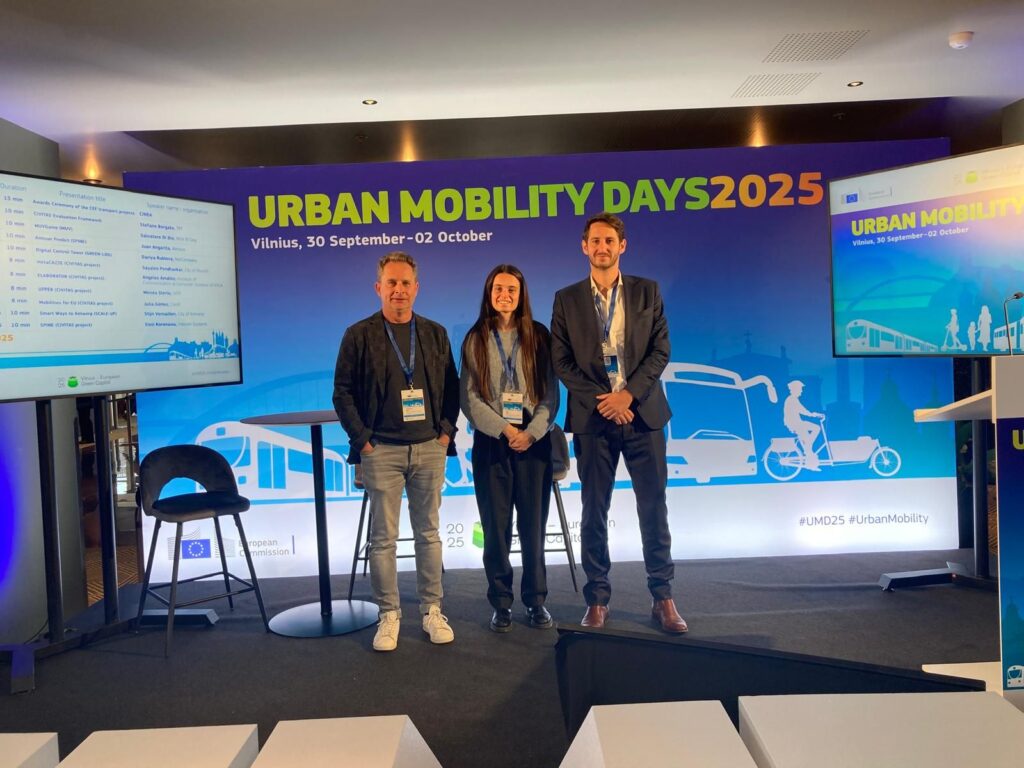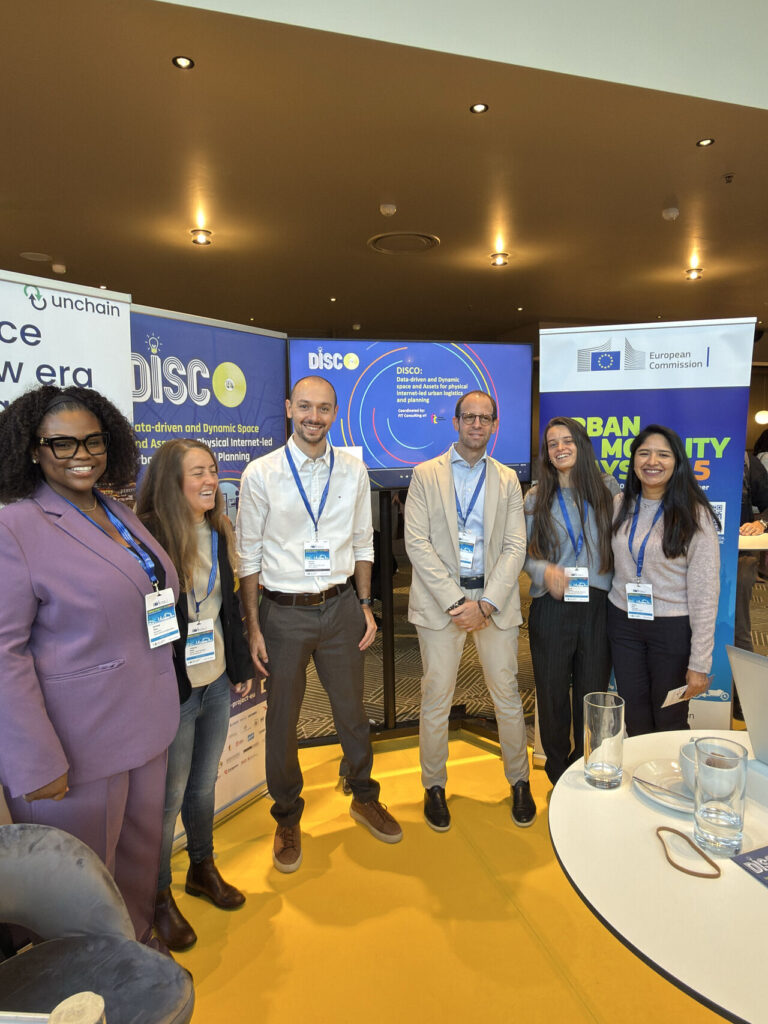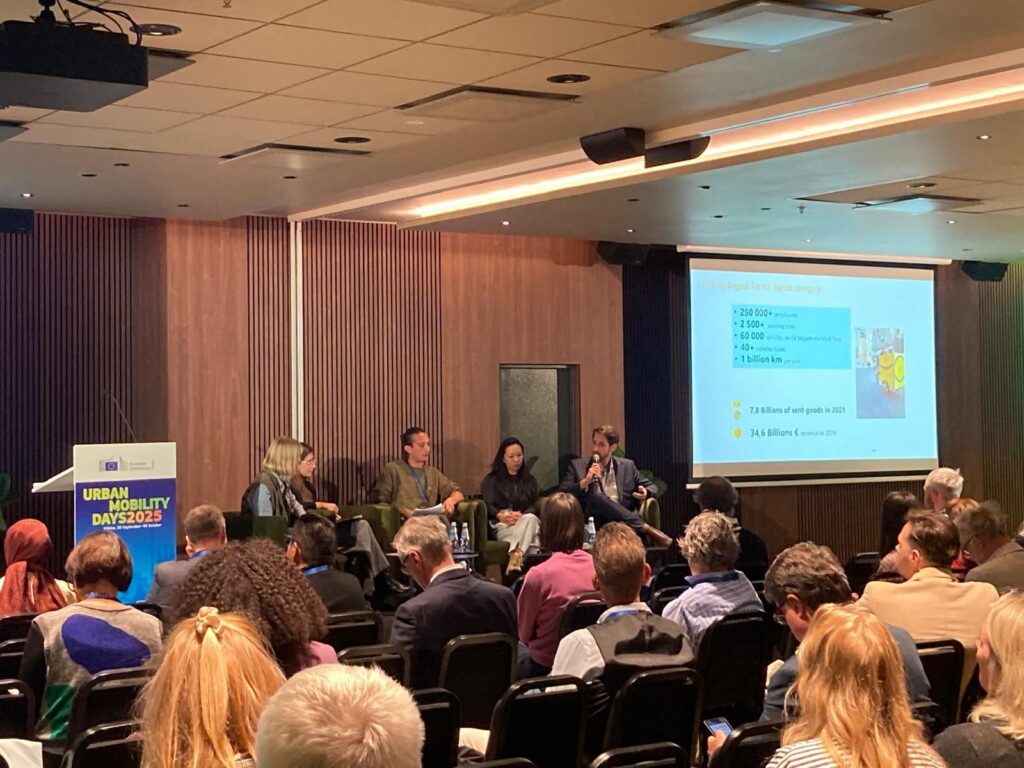Wednesday, October 15th, 2025
30 September – 2 October 2025 | Vilnius, European Green Capital 2025
From 30 September to 2 October, ALICE took part in the Urban Mobility Days 2025 – the European Commission’s flagship event on urban mobility, held this year in Vilnius, the European Green Capital 2025. The conference brought together policymakers, city representatives, researchers, and industry leaders to discuss how innovation, competitiveness, and sustainability can go hand in hand in Europe’s evolving mobility landscape.
ALICE was represented by Hans Schurmans (Proximus) and Johan Leveque (La Poste Group), co-chairs of the ALICE Urban Logistics Thematic Group, alongside Marion Cottet, Urban Logistics Deputy Programme Manager.
They contributed to two key sessions:
Both sessions built on the work of the Expert Group on Urban Mobility (EGUM) Sub-group on Urban Logistics, co-led by ALICE, POLIS, and ACEA. This collaboration has been instrumental in shaping EU recommendations on Sustainable Urban Logistics Planning (SULP), data sharing, and innovation uptake across European cities.
Cycle logistics emerged as a powerful lever for decarbonising urban deliveries. In dense city centres, cargo bikes can be highly competitive, performing multiple delivery rounds efficiently while reducing congestion and emissions. Their success depends on adequate infrastructure – such as safe lanes, micro-hubs, and adapted loading zones – and on innovative business models, including shared fleets, cooperatives, and partnerships with major carriers. The discussions also highlighted the social dimension of logistics, creating inclusive jobs and connecting local communities, and the need to fully integrate cycle logistics into the wider urban delivery ecosystem.
In the session on innovation and competitiveness, speakers underlined that sustainability and competitiveness reinforce one another when cities and operators share both risk and value. Public authorities must act as enablers, not just regulators, by providing space, incentives, and a predictable regulatory framework. Collaboration and data sharing were identified as key to scaling solutions. Participants agreed that while every city’s logistics ecosystem is different, successful innovation relies on partnership, adaptability, and evidence-based planning.
In the exhibition area, several ALICE-related Horizon Europe projects demonstrated concrete innovation pathways for sustainable urban logistics:
GreenTurn showcased solutions enabling cities and logistics operators to decarbonise last-mile deliveries through zero-emission fleets, advanced routing, and integration with renewable energy systems. The project focuses on real-world implementation of green urban delivery models in pilot cities across Europe.
DISCO (Data-driven, Integrated, Synchronised, Connected Urban Logistics) presented its framework for data sharing and coordination across multiple actors in the urban logistics ecosystem. The project is building a digital platform that helps cities optimise freight movements, reduce congestion, and measure environmental impact.
URBANE (Upscaling Innovative Green Urban Logistics Solutions) highlighted its work on upscaling successful pilots such as cargo bike fleets, urban consolidation centres, and shared micro-hubs. Through collaboration with municipalities, logistics providers, and technology developers, URBANE is helping cities replicate and expand sustainable delivery models across Europe.
Together, these projects embody ALICE’s mission to accelerate innovation, collaboration, and system integration – paving the way for greener, smarter, and more efficient logistics networks.
Representing ALICE, Marion Cottet engaged with partners and stakeholders throughout the event, continuing the dialogue on how to scale sustainable logistics innovation and integrate urban logistics into broader mobility strategies.
The discussions confirmed that Europe’s cities can combine sustainability and competitiveness – provided innovation is matched by cooperation, smart regulation, and viable business models.



